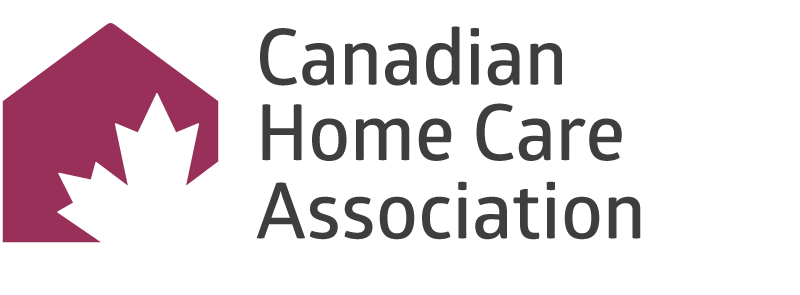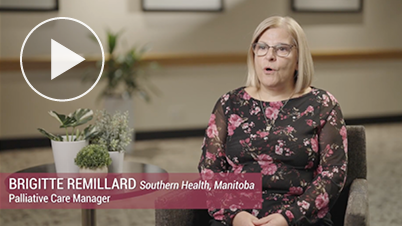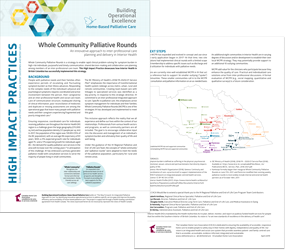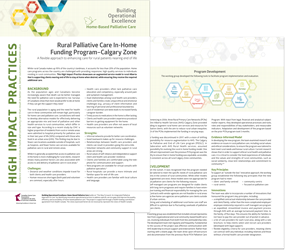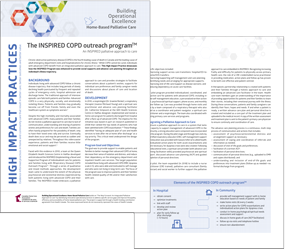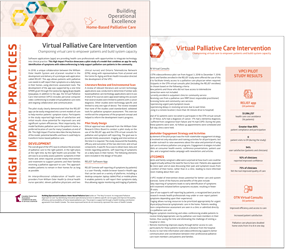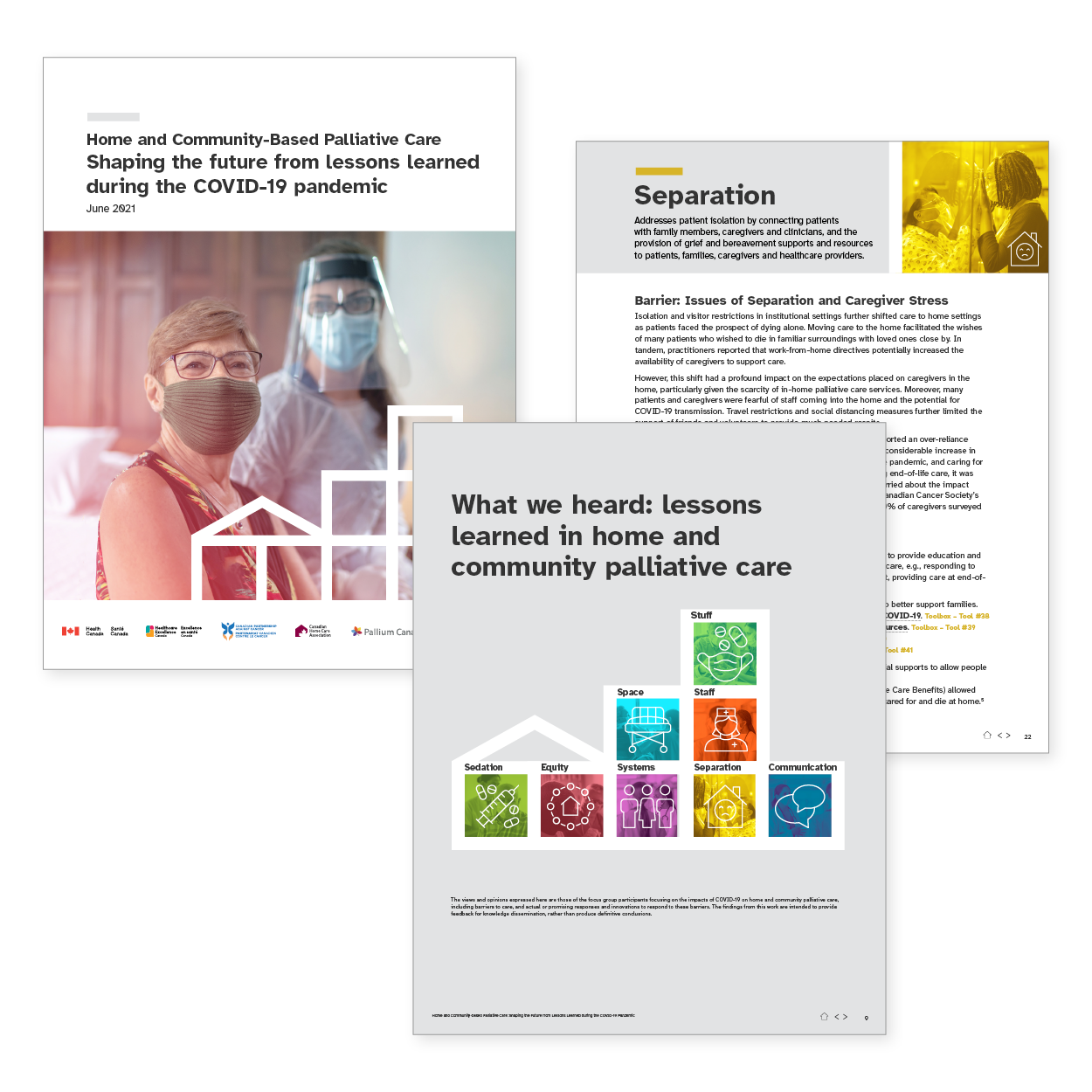PRIORITIES: Home-Based Palliative Care
IMPLEMENTING PROMISING PRACTICES
Across Canada, organizations are developing and testing innovative approaches to improve the delivery of home-based palliative care. Working with our members and partners, the CHCA identifies, documents, and shares these promising practices to support adoption and scale. By highlighting practical, evidence-informed models and facilitating implementation through our SPRINT Implementation Collaboratives, the CHCA is enhancing care delivery, addressing care gaps, and improving outcomes for individuals and families. Below are examples of leading practices in home-based palliative care that demonstrate what’s possible when innovation is implemented with purpose and collaboration.
